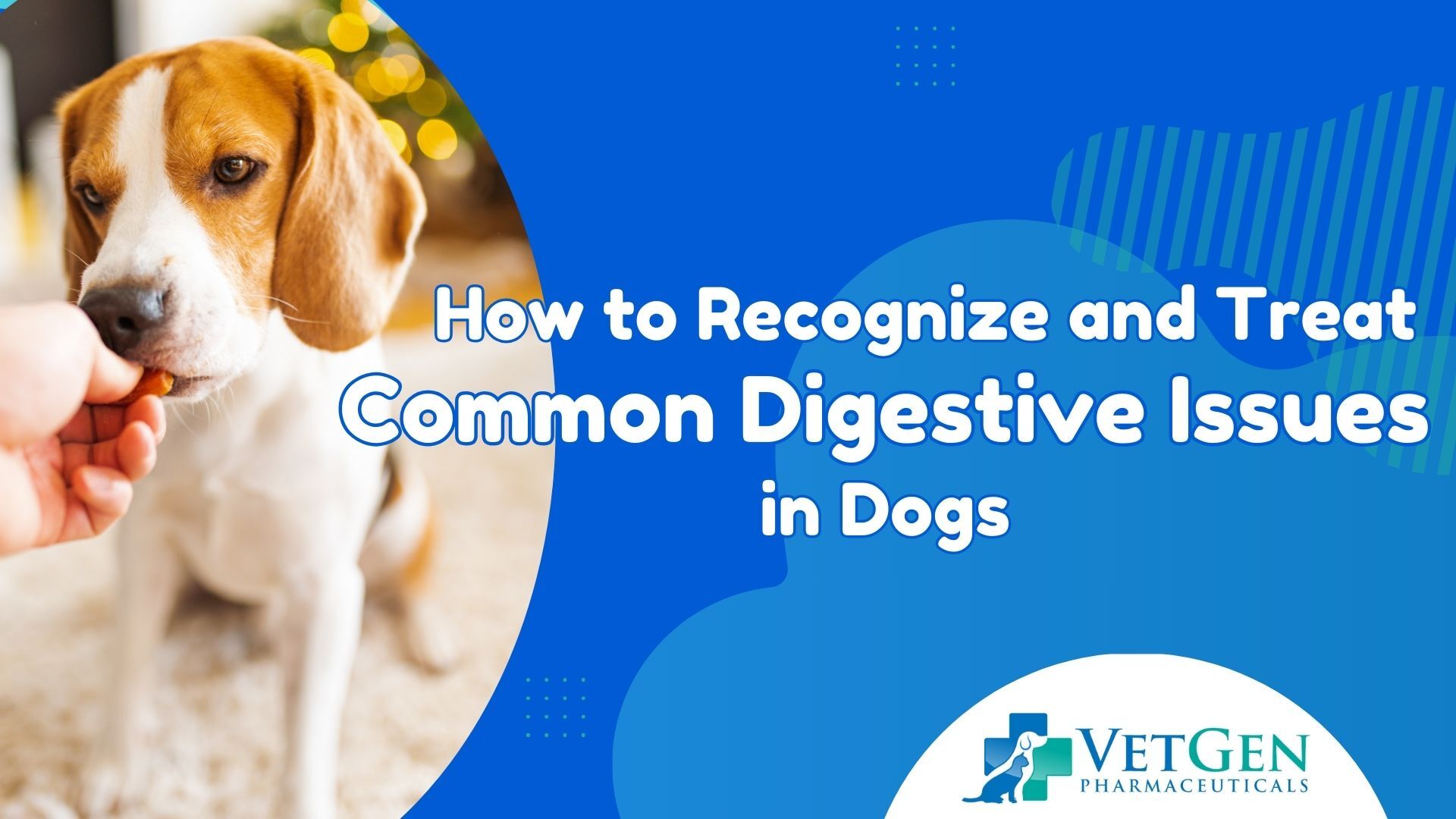Gastrointestinal problems are very frequent in canine patients. Some dogs hardly respond with any serious symptoms or side effects of the digestive challenges but others are worse off with severe forms of the diseases which have a number of side effects.
However, an area where many dog owners are seriously deficient is in acknowledging that their dog has digestive problems and therefore endeavoring to rectify the problems. So, how do you know if your dog has a digestive problem? In this article, we guide you to identify such common digestive issues in dogs, and solve them. All these tips you can use to help your dog live healthier.
Signs that your dog may have a digestive issue:
Gastrointestinal disorders in dogs can manifest themselves in various forms. However, some of the most common symptoms which you can identify as signs of digestive trouble include the following:
Pain in the Abdomen:
If your dog is prone to having over stimulant gassy or abdominal pains it may be a sign that your dog’s stomach is out of order. When this occurs the dog may pace or be unable to lie down as though it is uncomfortable.
Appetite Loss:
This is perhaps one of the primary signs of digestive problems and can at the same time be a result of other complications. In case your dog is rejecting food, such is a tell-tale sign that your dog could be sick, therefore, do consult the vet.
Nausea, Vomiting, and Diarrhea:
If your dog is vomiting, nauseated and/or experiencing diarrhea often, this might be a sign that there is a problem with the digestive system. If such symptoms are frequent, then you should take your pet to the vet at the first sign of it.
Unnatural Weight Loss:
In a situation where the dog is refusing food or is just skinny and there is no apparent reason behind it then your dog might be suffering from some digestive issue. This can result from a loss of appetite, or the inability of the dog to absorb the essential nutrients from the food.
How to treat digestive issues in dogs?
If your dog is experiencing digestive issues, and you are wondering how to treat digestive issues in dogs, the following remedies or techniques might help:
- Modifying Their Diet: Diet management and modification is among the most effective methods for treating digestive issues in dogs. Some of the changes which you can include are feeding your dog with food that is bland, and without any flavorings. The flavorings can cause stress on the gut lining, further aggravating digestive issues in dogs. A few days of bland diet can be gentle and help recover.
- Another helpful method is ensuring that the quality of food being provided to the dog is suitable for them. Cheap and low quality products can be hard on the dog’s stomach when eaten regularly. Similarly, it is equally important to identify food your dog is allergic to , and eliminate it from their diet.
- Finding Natural Treatments: Anti-inflammatory human foods and supplements that can be beneficial to feed this dog includes; bone broths, blueberries, bananas, sweet potatoes and pumpkin. These food items support the healing of gut lining plus their nutritive value aids in the repairing process and control of vomiting or diarrhea.
- Medical Therapies: If your dog has developed severe digestive trouble, it will be especially useful to receive medical treatment and remedies. . Firstly, speak with your veterinarian, and determine what the problem is and what led to it. After that, standard therapies such as giving digestive enzymes, prescribed drugs, and others may be given depending on the vet’s recommendation. This will help put the dog through a quick recovery process as well as ease the pain.
How does one restore the gut of a dog?
Many dog owners experiencing such problems related to their pets’ digestion are eager to know how to restart or possibly rebalance the dog’s digestive system. Here’s what can work for you:
- Introducing probiotics: A simple and best recommendation for this is plain yogurt, which contains skin friendly bacteria and is free from any flavoring and sugars. It also assists in developing the right sort of bacteria in the gut of the dog; this in a way aids in providing the stomach of the dog a natural relapse.
- Short fasts: In case your dog is having digestion complications, it is advised that your dog be put to fasting for about twelve to twenty-four hours. Do not feed them during these hours, however, ensure they drink water. This may assist in providing their stomach the much needed rest and a chance to regain their strength and health. This is especially helpful if they are vomitting.
- Create a feeding schedule: Irregular feeding is one of the biggest reasons why a lot of dogs get digestive troubles. To prevent it, try to put the dogs on a regular eating schedule in terms of time of feeding, as well as the diet being followed. This will help the digestive system go back to its optimal functioning.
What dogs are prone to digestive problems?
In general, all kinds of dogs are prone to developing digestive problems, owing to a number of factors. However, some species are more prone to develop these challenges. These include German Shepherds, Boxers, Bulldogs, Great Danes, and Yorkshire Terriers.
These species are prone to various ailments such as EPI, food allergies, pancreatitis, colitis, and other ailments that can predispose or contribute to digestive problems. If you own any of these breeds, it is recommended that you take your pet for checkups and ensure you are ahead of the ailment.
Nevertheless, this is not all dictated by the breed of a dog. Some other variables areage of the dog, what they eat (its composition and quality), much of the environment the dogs are placed in, and their genes, which all determine the possibility of the dog developing digestive problems. For example, an adult small breed dog has a higher chance of getting a complicated digestive tract problem than a large breed elderly dog, or a puppy. Also, stress influences the dogs’ health and general well-being and thus any dogs that are stressed due to living in stressful conditions will experience digestion problems as compared to the dogs that stay in relaxed conditions.
Conclusion
Dogs can develop digestive issues at any time, and some breeds are more at risk of developing them than others. Owners who have dogs of these breeds should maintain a consistent vet schedule to ensure their dogs are fit. All dog owners should take caution, even if the dog does not have a predisposition to developing these issues. Learning to identify symptoms, and getting the right treatment at the right time can help ensure your dog lives a healthier and happier life.






